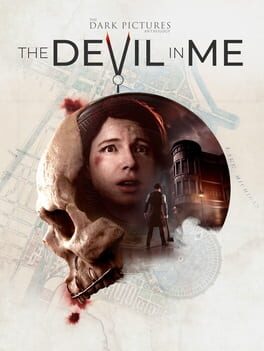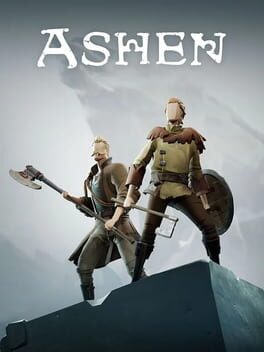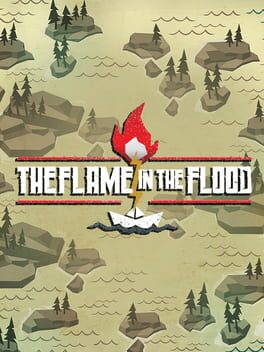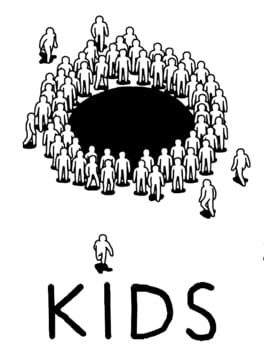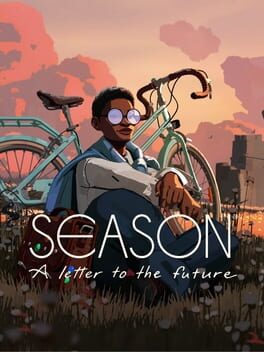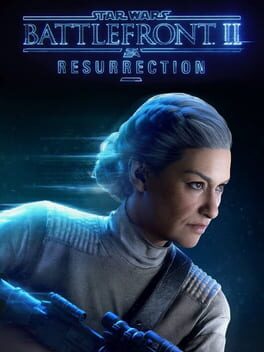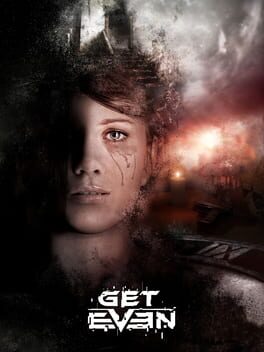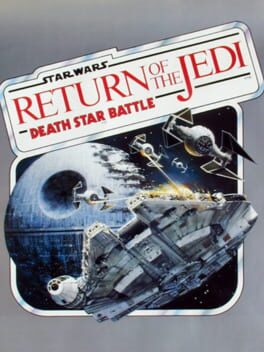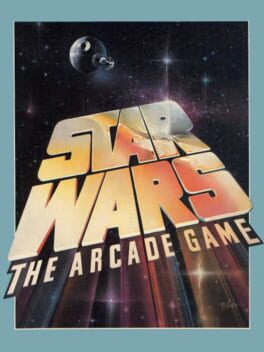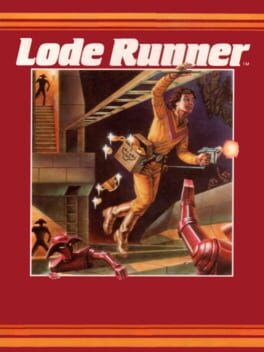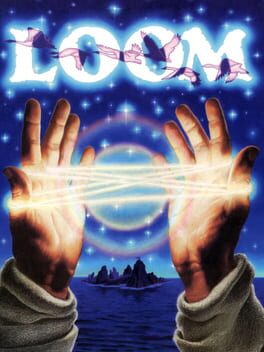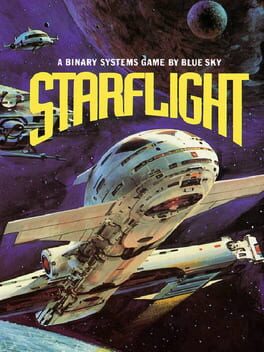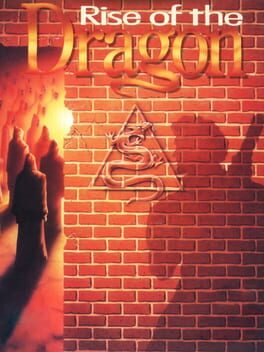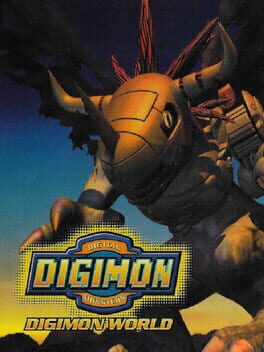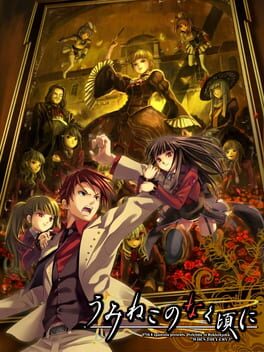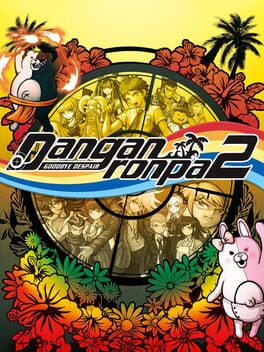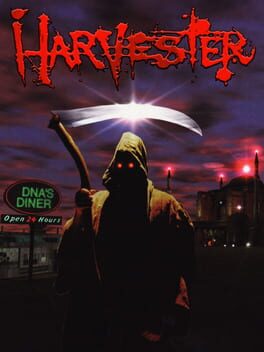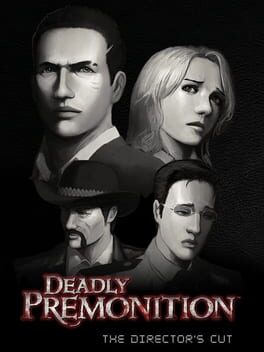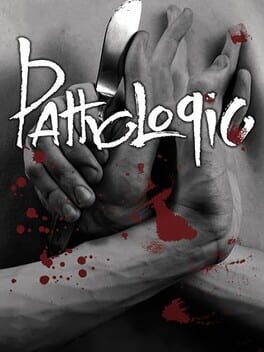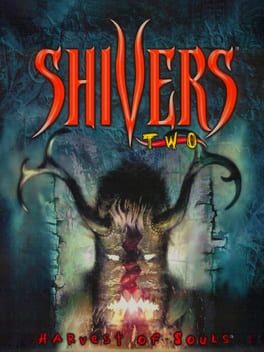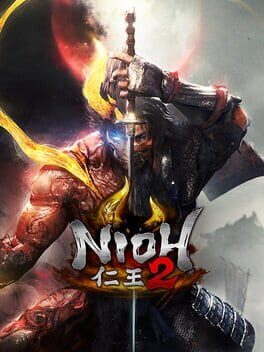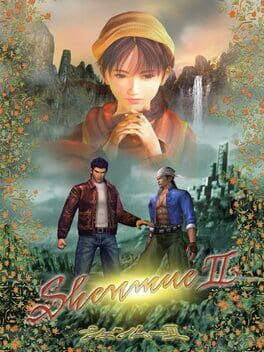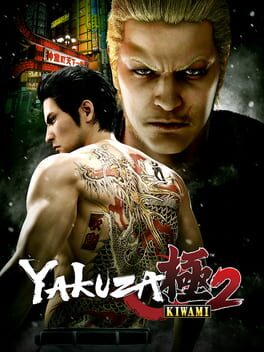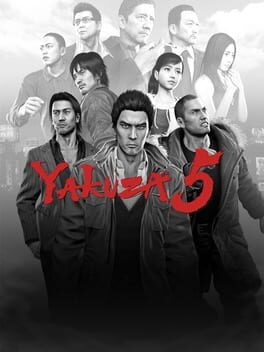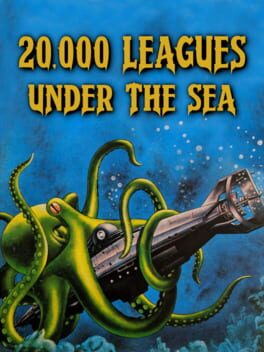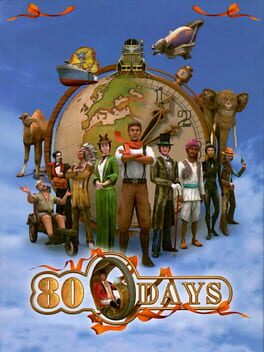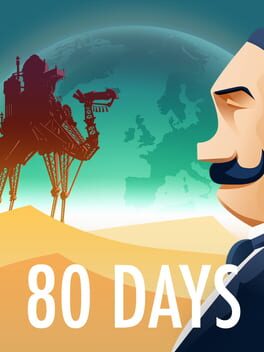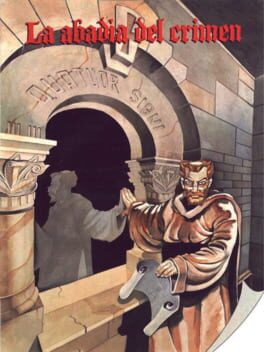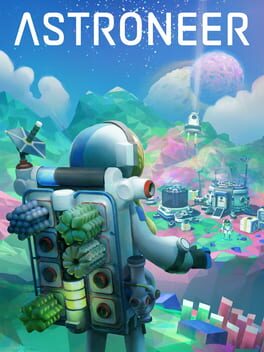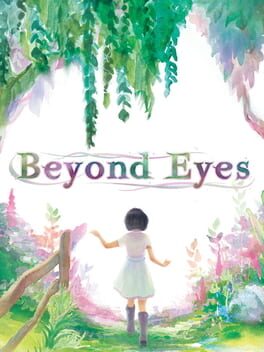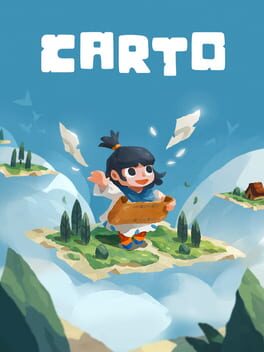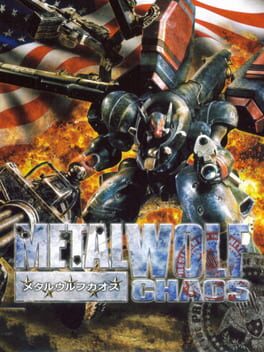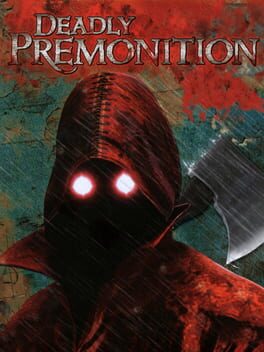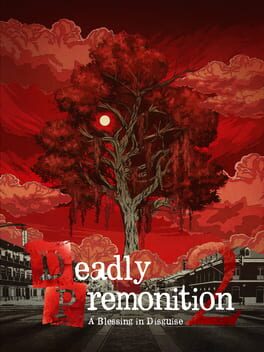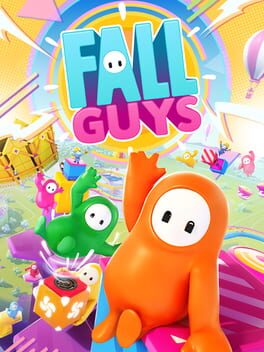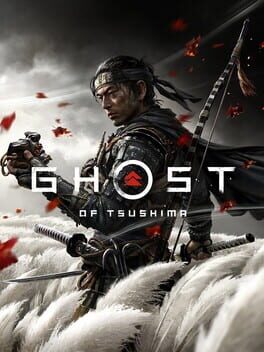CMike
BACKER
260 reviews liked by CMike
There are spoilers in this, but I put them all at the bottom so I didn't bother tagging it so beware! Also don't read this if the mention of animal abuse will make you very upset!
For reference, I played this on challenging difficulty and I have never played any of these games before with the conceit of just not having to. I watched someone else play Until Dawn a loooooong time ago, and I watched someone play Man of Medan and that game seemed OK.
I've seen a lot of horror movies. I've seen a lot of bad horror movies. This is a bad horror movie, but not in the fun way. Do you like... Slasher films with little to no slashing? Do you like... bad Saw movies? So just most of Saw, don't answer that regardless because you won't like this either way. I really don't have anything against these vaguely interactive cinematic type games, they seem pretty cool honestly, I hope there are better examples than this one. I very rarely feel like I've had my time wasted playing a game or watching a movie. Watching bad horror movies that take themselves too seriously is fun! It's not fun when it's a 7-8 hour long game with literally no payoff! Every time characters are running around, hiding, unlocking doors, climbing walls, running from man, it's for nothing. I literally every time some character getting split from the gang and then scene resolves said out loud, "you didn't do anything you didn't learn anything you did nothing", and they continued to do nothing.
Also the conceit of this guy just being down on his luck and having someone randomly call him that can seemingly fix all of his problems that this RANDOM guy couldn't have possibly known about, is very funny in hindsight. There is nothing supernatural afoot here, at least they never say so. They sure make you want to think there is early on, but they don't really care. This killer is just a guy. He's not an animatronic, he's not a ghost or a "Devil", he's just a guy. He gets fucked up a lot and never seems to care, he fell off a fucking roof and did a literal slapstick family guy broken limbs pose and just stood up immediately, he gets his face cut open in a boat that crashes into a rock and explodes, totally fine. I assume the conceit is that it's something supernatural but they don't fucking TELL YOU THAT.
Again hackish horror stories like this can be fun but this overstays it's welcome badly and half of this cast is just insufferable. Also they aren't people. Director CEO guy who is CEO pilled and treats everyone like shit, guy who's scared of heights and also dumped his girlfriend that's pretty much it, girl who got dumped, girl who likes audio, girl that can hack things. These things don't even dominate their personalities it's just all they have going on. Their personalities are hating on each other insufferably for no reason, except audio girl and hacker girl who are lesbians and carry this game on their back until the very end when they are the product of one of the worst scenes in the game.
I guess I'll get into the spoilery stuff now. This fucking bozo is literally teleporting across the entire island constantly and they never explain how. "Oh well he had that sci-fi maintenance tunnel that he toooootally built himself" how did he get out of the wall he got trapped behind LITERALLY IMMEDIATELY. For the longest time playing this I just assumed there were multiple people involved, one of the characters even brings up that possibility at one point and is immediately shut down. So are there multiple people involved? I don't know, they don't fucking tell you anything ever! He even completely whiffs the boat they escape on and misses them and is SOMEHOW on the boat when they're in the middle of the lake, gets his face cut open, crashes into a big rock and explodes, and is still alive. Is there something supernatural afoot? Idk didn't seem like it don't ask me. Also I don't care if you don't have to do it but them giving you the option to kill the dog to make it stop barking is fucking gross. Especially when if decisions are already made so that both of the normal people will survive the scenario it literally doesn't change anything. I didn't do it obviously but I was still upset that I even had the option in the first place, feels fucking gross.
Bottom line, if this were a bad horror movie that took itself way too seriously for like an hour and a half it'd be fun! But it's an 8 hour long 40 dollar game! It's not fun and the few moments of gameplay that were literally just find a door to open move a thing and jump on it was fucking boring I would have rather they'd just not been there. Also I had a bug where one of my decisions I made got a character killed EVEN THOUGH I did exactly what I needed to do for them to live, so I restarted the scene from the beginning, did it again, still died, restarted, tried another method that lets them survive, still died, tried the last possible one, still died, fuck you. Fuck you especially because that specific scene is so overly gross out gross. Maybe this is a PC thing but I looked it up and other people also had this happen at this exact scene so seems like a pretty fuckin big oversight.
For reference, I played this on challenging difficulty and I have never played any of these games before with the conceit of just not having to. I watched someone else play Until Dawn a loooooong time ago, and I watched someone play Man of Medan and that game seemed OK.
I've seen a lot of horror movies. I've seen a lot of bad horror movies. This is a bad horror movie, but not in the fun way. Do you like... Slasher films with little to no slashing? Do you like... bad Saw movies? So just most of Saw, don't answer that regardless because you won't like this either way. I really don't have anything against these vaguely interactive cinematic type games, they seem pretty cool honestly, I hope there are better examples than this one. I very rarely feel like I've had my time wasted playing a game or watching a movie. Watching bad horror movies that take themselves too seriously is fun! It's not fun when it's a 7-8 hour long game with literally no payoff! Every time characters are running around, hiding, unlocking doors, climbing walls, running from man, it's for nothing. I literally every time some character getting split from the gang and then scene resolves said out loud, "you didn't do anything you didn't learn anything you did nothing", and they continued to do nothing.
Also the conceit of this guy just being down on his luck and having someone randomly call him that can seemingly fix all of his problems that this RANDOM guy couldn't have possibly known about, is very funny in hindsight. There is nothing supernatural afoot here, at least they never say so. They sure make you want to think there is early on, but they don't really care. This killer is just a guy. He's not an animatronic, he's not a ghost or a "Devil", he's just a guy. He gets fucked up a lot and never seems to care, he fell off a fucking roof and did a literal slapstick family guy broken limbs pose and just stood up immediately, he gets his face cut open in a boat that crashes into a rock and explodes, totally fine. I assume the conceit is that it's something supernatural but they don't fucking TELL YOU THAT.
Again hackish horror stories like this can be fun but this overstays it's welcome badly and half of this cast is just insufferable. Also they aren't people. Director CEO guy who is CEO pilled and treats everyone like shit, guy who's scared of heights and also dumped his girlfriend that's pretty much it, girl who got dumped, girl who likes audio, girl that can hack things. These things don't even dominate their personalities it's just all they have going on. Their personalities are hating on each other insufferably for no reason, except audio girl and hacker girl who are lesbians and carry this game on their back until the very end when they are the product of one of the worst scenes in the game.
I guess I'll get into the spoilery stuff now. This fucking bozo is literally teleporting across the entire island constantly and they never explain how. "Oh well he had that sci-fi maintenance tunnel that he toooootally built himself" how did he get out of the wall he got trapped behind LITERALLY IMMEDIATELY. For the longest time playing this I just assumed there were multiple people involved, one of the characters even brings up that possibility at one point and is immediately shut down. So are there multiple people involved? I don't know, they don't fucking tell you anything ever! He even completely whiffs the boat they escape on and misses them and is SOMEHOW on the boat when they're in the middle of the lake, gets his face cut open, crashes into a big rock and explodes, and is still alive. Is there something supernatural afoot? Idk didn't seem like it don't ask me. Also I don't care if you don't have to do it but them giving you the option to kill the dog to make it stop barking is fucking gross. Especially when if decisions are already made so that both of the normal people will survive the scenario it literally doesn't change anything. I didn't do it obviously but I was still upset that I even had the option in the first place, feels fucking gross.
Bottom line, if this were a bad horror movie that took itself way too seriously for like an hour and a half it'd be fun! But it's an 8 hour long 40 dollar game! It's not fun and the few moments of gameplay that were literally just find a door to open move a thing and jump on it was fucking boring I would have rather they'd just not been there. Also I had a bug where one of my decisions I made got a character killed EVEN THOUGH I did exactly what I needed to do for them to live, so I restarted the scene from the beginning, did it again, still died, restarted, tried another method that lets them survive, still died, tried the last possible one, still died, fuck you. Fuck you especially because that specific scene is so overly gross out gross. Maybe this is a PC thing but I looked it up and other people also had this happen at this exact scene so seems like a pretty fuckin big oversight.
House of Ashes was a showing that Supermassive had learned a lot of lessons and put everything together. The Devil In Me is like they forgot all of those lessons. It goes on too long and the cast keeps falling for the same traps. I lost my first character in what I felt was a BS way. Lost the second character because I didn't kill a dog. Feel let down by the Season 1 finale.
Ashen
2018
Played: April 2022
The promise of wayfaring out into a withered world and shepherding weary souls back to a village that's always expanding is what drew me to Ashen.
It's a concept I've loved in games like Dark Cloud 2 and Ys 8, and I enjoy it most when I don't have to do any of the base-building or resource management of growing that village. In this soulslike you simply find people out in the wilderness, and every time you return home to Vagrant's Rest after a new main or side quest, you'll find that a pile of rocks has become a scaffolding and eventually a whole new house. I get "dungeon anxiety" pretty easily -- it's part of the fun -- but the relief that comes with the safety of reaching a new town after a treacherous dungeon feels more profound when it's the warmth of a familiar home that has welcomed new life.
This is my third soulslike after Nioh and Sekiro (I haven't played an actual Dark Souls), and while it's much easier than both of those games, it's still harder than a typical action adventure or action RPG. Enemies lash out from any and all corners, and I spent every run learning the nuances of an area until my next inevitable death. This one lets you recharge your health at ritual stones (its bonfires) without having to reset the area, which makes it more approachable than other games in this genre. The world is both dour and lively, but every bit of life out there is marked for death by your hands unless they're a story character or trader. Two repeat character models (villager and trader) also find their way back to Vagrant's Rest without you having to explicitly recruit them. They make things much more lived-in than if it were just named characters, but they were a little too nondescript for my taste even with well-written flavor text. It's funny that the villager is also a common enemy type out in the world. As if the only thing separating them between blindly attacking you and sharing a roof with you is the village border. Home is a line of sanity, I guess.
Desaturated clay is a good look for Ashen. Much of the world is gray, true to its name, but much of it's also sun-kissed and golden red. Much more of it, still, is pitch black and requires a lantern to explore. The lack of details on the environmental textures and the lack of features on characters' faces invited me to appreciate the aesthetic more holistically. It's less about individual leaves in the wind and more about the collective people in a storm. I enjoyed how anonymous the player character is. You're made to go everywhere with a companion, but which one depends on the selected quest, and the emptiness of my own character led me to latch on more to these supporters. It also eased that dungeon anxiety to have a companion -- a piece of my safe haven -- with me at all times. They make the wilderness easier to overcome, both in combat and traversal. I'm pretty sure main story exploration outright requires a companion to progress, and while skilled players can defeat enemies in combat alone, a companion goes a long way. I don't have PlayStation Plus, so mine was never another player but an AI, to which I'd give a grade of B+. There were a couple of glitchy moments (I once lost, like, 60k of in-game currency to my companion being unable to revive me by getting stuck in a doorway), and they don't always fight strategically, but for the most part they do what they're supposed to. One of the boss fight strategies was to lure them towards me and just let my companion strike from behind the whole time. I still haven't decided if that was smart characterization for that particular boss or poor game design. Maybe it's one sacrificed for the other? It was at the end of a dungeon that was a total son of a bitch, so I didn't mind.
Admittedly, I didn't grab on to the central narrative or lore much. You're trying to revive some being of light called the Ashen that will guide this world from out of darkness. I think. Everything lives in the ruins of a once-great empire, which made for a pretty cool level design. I did generally latch on to most of the main and side characters. Peg-legged guy looking for his tools and eventually his younger sister. The woman hellbent on curing a disease that another main character has by sending you out to fight stronger and stranger creatures she can study. Another woman whose quests involve bringing back each of her five senses until she's whole again. A couple of godlike beings whose stature against your tiny character is breathtaking. What they lack in facial features is more than made up by height, color, shape, and costume design. Even the fact that swords aren't a thing in this world and you're stuck with variations of axes and clubs gives it a distinct primitive personality. While the combat is pretty basic with light and heavy attack combos and dodge rolls, individual weapons have such nuance to their playstyle, you could stick with early-game weapons the entire time if it suits you -- as long as you keep them leveled up via crafting. I do advise swapping out for newer shields, though.
All told, Ashen is pleasing to the eye, fairly short, and it understands that home is other people. Check it out!
The promise of wayfaring out into a withered world and shepherding weary souls back to a village that's always expanding is what drew me to Ashen.
It's a concept I've loved in games like Dark Cloud 2 and Ys 8, and I enjoy it most when I don't have to do any of the base-building or resource management of growing that village. In this soulslike you simply find people out in the wilderness, and every time you return home to Vagrant's Rest after a new main or side quest, you'll find that a pile of rocks has become a scaffolding and eventually a whole new house. I get "dungeon anxiety" pretty easily -- it's part of the fun -- but the relief that comes with the safety of reaching a new town after a treacherous dungeon feels more profound when it's the warmth of a familiar home that has welcomed new life.
This is my third soulslike after Nioh and Sekiro (I haven't played an actual Dark Souls), and while it's much easier than both of those games, it's still harder than a typical action adventure or action RPG. Enemies lash out from any and all corners, and I spent every run learning the nuances of an area until my next inevitable death. This one lets you recharge your health at ritual stones (its bonfires) without having to reset the area, which makes it more approachable than other games in this genre. The world is both dour and lively, but every bit of life out there is marked for death by your hands unless they're a story character or trader. Two repeat character models (villager and trader) also find their way back to Vagrant's Rest without you having to explicitly recruit them. They make things much more lived-in than if it were just named characters, but they were a little too nondescript for my taste even with well-written flavor text. It's funny that the villager is also a common enemy type out in the world. As if the only thing separating them between blindly attacking you and sharing a roof with you is the village border. Home is a line of sanity, I guess.
Desaturated clay is a good look for Ashen. Much of the world is gray, true to its name, but much of it's also sun-kissed and golden red. Much more of it, still, is pitch black and requires a lantern to explore. The lack of details on the environmental textures and the lack of features on characters' faces invited me to appreciate the aesthetic more holistically. It's less about individual leaves in the wind and more about the collective people in a storm. I enjoyed how anonymous the player character is. You're made to go everywhere with a companion, but which one depends on the selected quest, and the emptiness of my own character led me to latch on more to these supporters. It also eased that dungeon anxiety to have a companion -- a piece of my safe haven -- with me at all times. They make the wilderness easier to overcome, both in combat and traversal. I'm pretty sure main story exploration outright requires a companion to progress, and while skilled players can defeat enemies in combat alone, a companion goes a long way. I don't have PlayStation Plus, so mine was never another player but an AI, to which I'd give a grade of B+. There were a couple of glitchy moments (I once lost, like, 60k of in-game currency to my companion being unable to revive me by getting stuck in a doorway), and they don't always fight strategically, but for the most part they do what they're supposed to. One of the boss fight strategies was to lure them towards me and just let my companion strike from behind the whole time. I still haven't decided if that was smart characterization for that particular boss or poor game design. Maybe it's one sacrificed for the other? It was at the end of a dungeon that was a total son of a bitch, so I didn't mind.
Admittedly, I didn't grab on to the central narrative or lore much. You're trying to revive some being of light called the Ashen that will guide this world from out of darkness. I think. Everything lives in the ruins of a once-great empire, which made for a pretty cool level design. I did generally latch on to most of the main and side characters. Peg-legged guy looking for his tools and eventually his younger sister. The woman hellbent on curing a disease that another main character has by sending you out to fight stronger and stranger creatures she can study. Another woman whose quests involve bringing back each of her five senses until she's whole again. A couple of godlike beings whose stature against your tiny character is breathtaking. What they lack in facial features is more than made up by height, color, shape, and costume design. Even the fact that swords aren't a thing in this world and you're stuck with variations of axes and clubs gives it a distinct primitive personality. While the combat is pretty basic with light and heavy attack combos and dodge rolls, individual weapons have such nuance to their playstyle, you could stick with early-game weapons the entire time if it suits you -- as long as you keep them leveled up via crafting. I do advise swapping out for newer shields, though.
All told, Ashen is pleasing to the eye, fairly short, and it understands that home is other people. Check it out!
Zipper
2022
Zipper
2022
Kids
2019
“Find a sacred square of earth. Lay down, so you have the dirt at your back. Close your eyes. Close everything. Your ancestors are in that dirt. All the living and all the dead are holding you up. Now Stand. They’re still there, aren’t they? It’s time to move. To entangle yourself everywhere with everyone. So that next time you lay down in the dirt, you will have so much more to tell them.”
As I’m sure many of us can, I recall the time we moved out from our childhood home - the rooms I spent my most formative years and the battle scars they earned through the hustle and bustle of young family life. I’m thinking of my bedroom; my wooden crew bed riddled with teeth marks and Cartoon Network stickers. The pale blue colour of the paint on the walls, frayed and cracked in the areas I gormlessly taped posters without my parents’ permission. The doodles I hid in the corners of the furniture their eyes couldn’t reach, depicting my aspirations for the future, the riches and gifts and moments I’d give to my dearest friends and family. It’s been a good twenty~or-so~ years since I last saw those remnants of my past, and I’m a little stunned in how Season allowed me to think back to them so vividly for the first time in nearly as long. Everything can tell a story, host a spirit of the past - miniscule but never completely insignificant. I wish I could see them again, I wish I had the foresight to have taken photographs or something.
Ultimately, this is what Season: A Letter To The Future is about, sculpting in time out of photographs, sketches and audio recordings. Preserving memories of the world as it stands before a vague concept of calamity threatens to change it. In its opening moments, your character Estelle and her mother are making a pendant to protect Estelle’s mind on the journey ahead. Doing so means Estelle’s mother has to give up five memories of her own. The courtyard where you’re asked to gather your first recordings is staged perfectly. Decorations from a party last night still hang in a tree, and signs of the village’s lived-in past are everywhere. A leisurely stroll to capture all I could of the gorgeous little village, rendered lovingly with painterly oranges and purples.
I couldn’t believe my luck, it’s an amazing start to the game. The establishment of melancholic urgency and the world being rich with cultures and theologies that beg to be preserved for future generations, and the understanding of how frail the mind really is… How eager it seems to omit and alter the past to safeguard ourselves from oversentimentality. Couldn’t have been more captivated. And as my bicycle crested the final stretch of the hilltop, I tip over the edge, letting go of the controller, letting gravity take over and pull me down the long and winding road ahead, I realise that the game is a little special.
Season’s secret weapon is in its journal mechanic - wherein the player can freely personalise the entries afforded to you with custom placements of polaroid photographs you’ve taken, as well as sketches, decals, flora and whatever else you find on your journey. There’s a decent amount of freedom of expression here allowing you to capture the essence of a location however best you see fit. The kicker is that you only have two pages per key location. It can often be all too tempting to just sweep through a videogame map and hoard every shiny collectible like a kinda crow, but imposed upon the journal is a limited framework per key locale that forces you to be mindful of the things you choose to omit. My mind was on hyperdrive during this early stretch of the game; viewfinding striking angles for my photographs and designing the best notebook pages I felt an area deserved, and deciding what records were of the most importance.
Sadly, this doesn’t last too long. Eventually you reach the open-world segment where most of the playtime is spent - Tieng Valley. While clearly a lovingly realised zone filled with historic locales and mindful touches, it introduces a monotonous feeling to its exploration as things become increasingly clear that the scope of the game falls too narrow to match what I was hoping for. This isn’t Kino’s Journey, it’s one episode of Kino’s journey stretched thin over a 5~6 hour playtime. It slows down in its variety of unique stimuli and begins to focus more keenly on the mystery of the sole opposition in the game and their goal of ushering forth the ‘end of the world’. That’s not necessarily a problem on its own, but neither the mystery nor the few remaining citizens of Tieng Valley are all that compelling. The people of the valley are traumatized by memories of past conflicts, and much of life there is centered around how to live with that trauma or forget it completely. Season settles into the most anodyne musings on memory and how people live with the past… the transience of memory and the collective ability to heal. The themes tackled are so broad, it’s hard to pick a message out of all the noise, and it truly doesn’t help that the delivery is so flat. Its focus on small human stories and creative expression is admirable, even as they’re drowned out by a lukewarm plot, and the world’s beauty can’t be overstated. But rather than the meditative, meandering journey its opening suggests, Season gets locked into a single story that centers on the cataclysmic fate approaching its world more than the wonder that already fills it.
I’m disappointed, ultimately, but it was a nice pilgrimage.
As I’m sure many of us can, I recall the time we moved out from our childhood home - the rooms I spent my most formative years and the battle scars they earned through the hustle and bustle of young family life. I’m thinking of my bedroom; my wooden crew bed riddled with teeth marks and Cartoon Network stickers. The pale blue colour of the paint on the walls, frayed and cracked in the areas I gormlessly taped posters without my parents’ permission. The doodles I hid in the corners of the furniture their eyes couldn’t reach, depicting my aspirations for the future, the riches and gifts and moments I’d give to my dearest friends and family. It’s been a good twenty~or-so~ years since I last saw those remnants of my past, and I’m a little stunned in how Season allowed me to think back to them so vividly for the first time in nearly as long. Everything can tell a story, host a spirit of the past - miniscule but never completely insignificant. I wish I could see them again, I wish I had the foresight to have taken photographs or something.
Ultimately, this is what Season: A Letter To The Future is about, sculpting in time out of photographs, sketches and audio recordings. Preserving memories of the world as it stands before a vague concept of calamity threatens to change it. In its opening moments, your character Estelle and her mother are making a pendant to protect Estelle’s mind on the journey ahead. Doing so means Estelle’s mother has to give up five memories of her own. The courtyard where you’re asked to gather your first recordings is staged perfectly. Decorations from a party last night still hang in a tree, and signs of the village’s lived-in past are everywhere. A leisurely stroll to capture all I could of the gorgeous little village, rendered lovingly with painterly oranges and purples.
I couldn’t believe my luck, it’s an amazing start to the game. The establishment of melancholic urgency and the world being rich with cultures and theologies that beg to be preserved for future generations, and the understanding of how frail the mind really is… How eager it seems to omit and alter the past to safeguard ourselves from oversentimentality. Couldn’t have been more captivated. And as my bicycle crested the final stretch of the hilltop, I tip over the edge, letting go of the controller, letting gravity take over and pull me down the long and winding road ahead, I realise that the game is a little special.
Season’s secret weapon is in its journal mechanic - wherein the player can freely personalise the entries afforded to you with custom placements of polaroid photographs you’ve taken, as well as sketches, decals, flora and whatever else you find on your journey. There’s a decent amount of freedom of expression here allowing you to capture the essence of a location however best you see fit. The kicker is that you only have two pages per key location. It can often be all too tempting to just sweep through a videogame map and hoard every shiny collectible like a kinda crow, but imposed upon the journal is a limited framework per key locale that forces you to be mindful of the things you choose to omit. My mind was on hyperdrive during this early stretch of the game; viewfinding striking angles for my photographs and designing the best notebook pages I felt an area deserved, and deciding what records were of the most importance.
Sadly, this doesn’t last too long. Eventually you reach the open-world segment where most of the playtime is spent - Tieng Valley. While clearly a lovingly realised zone filled with historic locales and mindful touches, it introduces a monotonous feeling to its exploration as things become increasingly clear that the scope of the game falls too narrow to match what I was hoping for. This isn’t Kino’s Journey, it’s one episode of Kino’s journey stretched thin over a 5~6 hour playtime. It slows down in its variety of unique stimuli and begins to focus more keenly on the mystery of the sole opposition in the game and their goal of ushering forth the ‘end of the world’. That’s not necessarily a problem on its own, but neither the mystery nor the few remaining citizens of Tieng Valley are all that compelling. The people of the valley are traumatized by memories of past conflicts, and much of life there is centered around how to live with that trauma or forget it completely. Season settles into the most anodyne musings on memory and how people live with the past… the transience of memory and the collective ability to heal. The themes tackled are so broad, it’s hard to pick a message out of all the noise, and it truly doesn’t help that the delivery is so flat. Its focus on small human stories and creative expression is admirable, even as they’re drowned out by a lukewarm plot, and the world’s beauty can’t be overstated. But rather than the meditative, meandering journey its opening suggests, Season gets locked into a single story that centers on the cataclysmic fate approaching its world more than the wonder that already fills it.
I’m disappointed, ultimately, but it was a nice pilgrimage.
Get Even
2017
11 lists liked by CMike
by Kago |
195 Games
by BeeKirby |
79 Games
by undertale |
78 Games
by megafat1 |
421 Games
by Decimsimia |
34 Games
by Hot_Anarcocoa |
58 Games
by jakobvongunten |
198 Games
by Decimsimia |
27 Games
